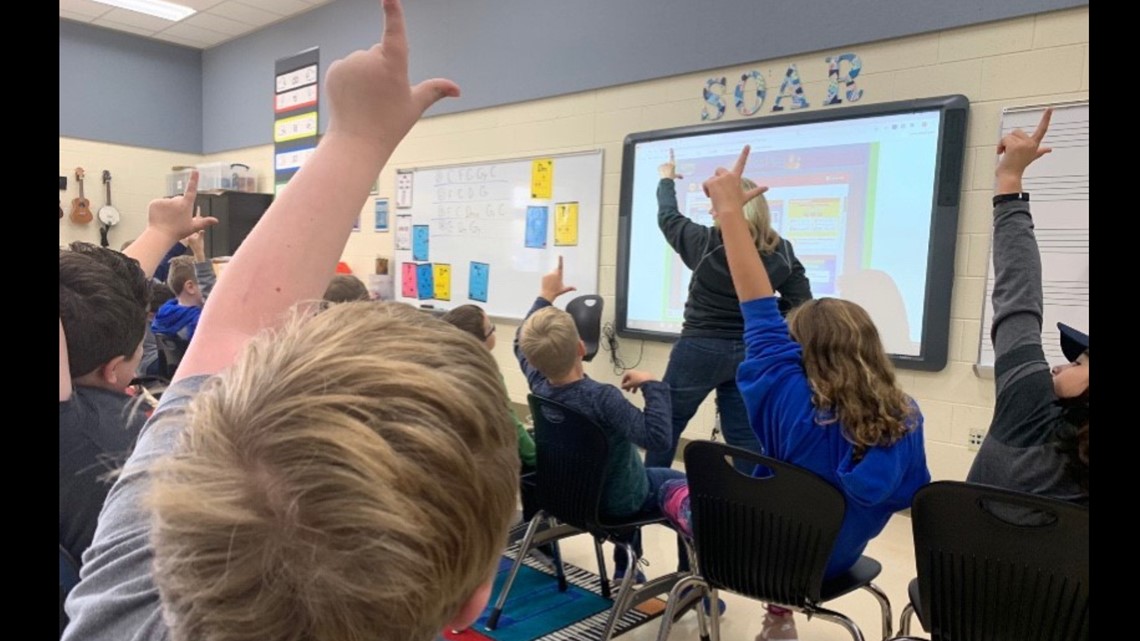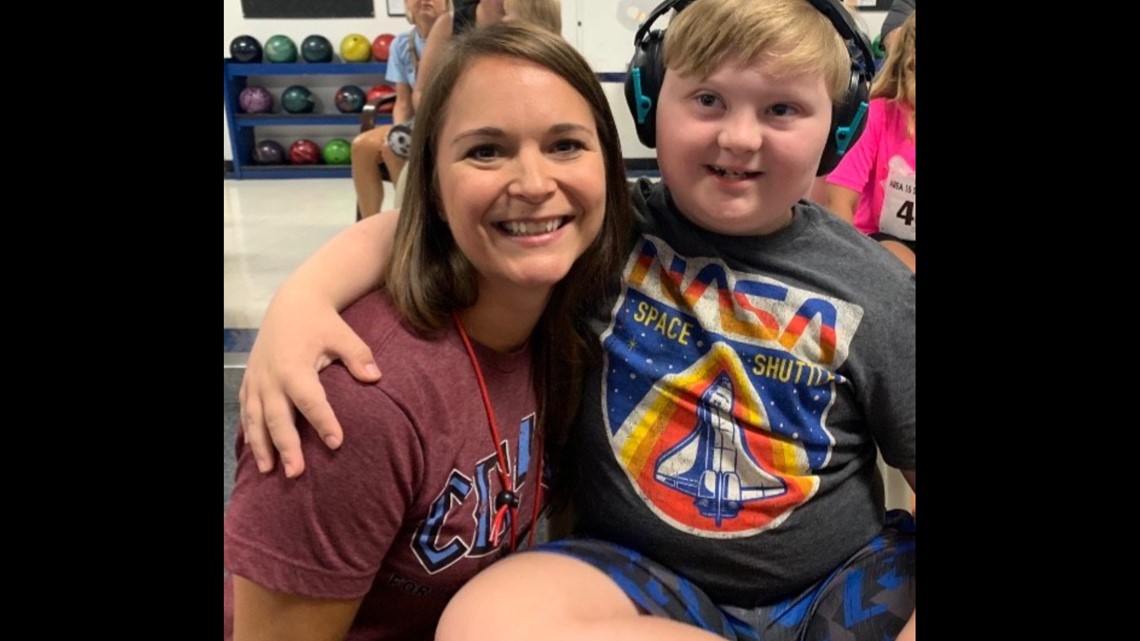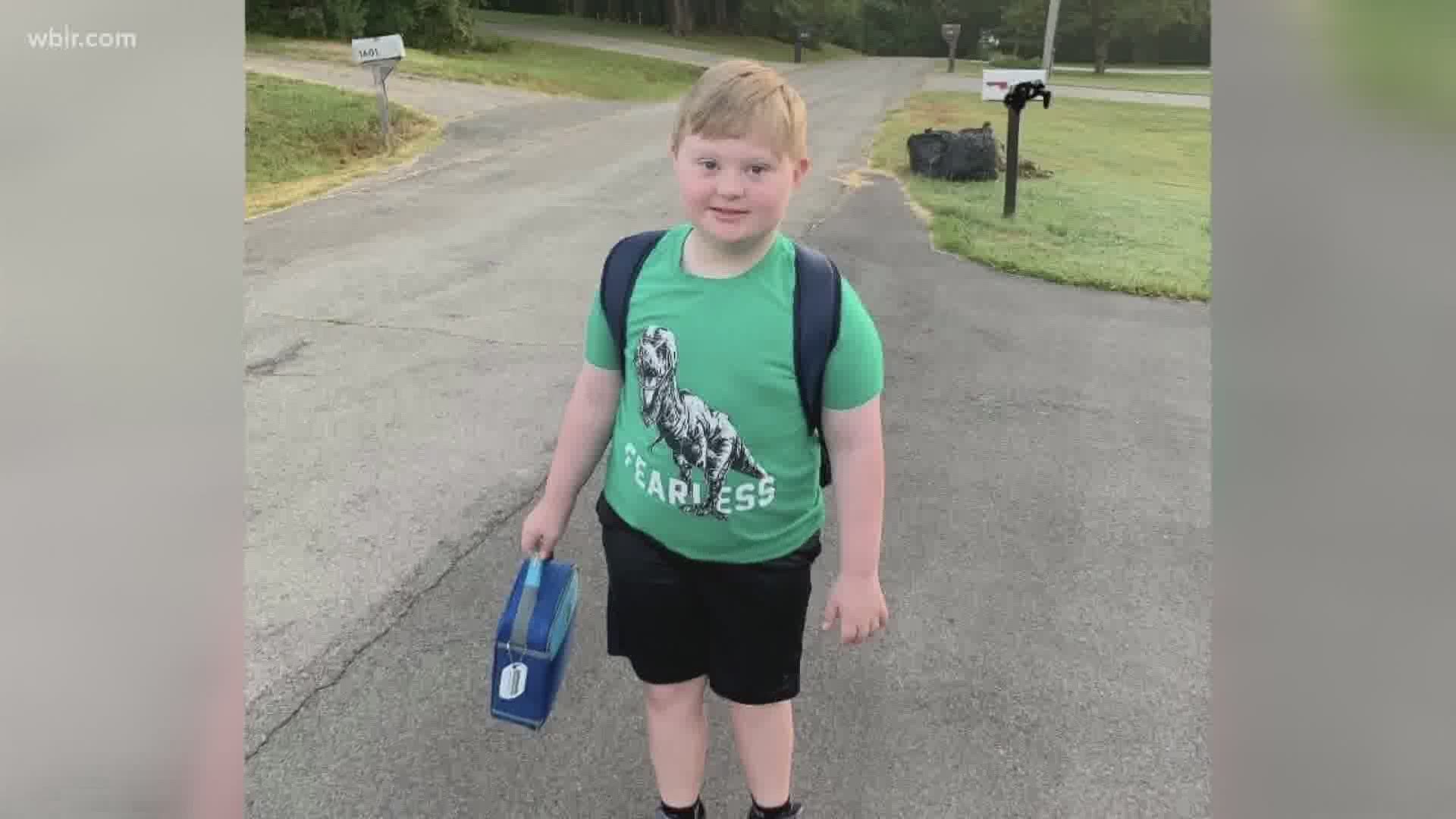MARYVILLE, Tenn — The choice between in-person or virtual learning is not that simple for students with special needs.
Maryville City Schools serves approximately 650 students with special needs in grades k-12 and, like many other school districts, has been trying to figure out what the new school year will look like.
Dana Brown has been mulling over the decision since her son's school shut down in March.
"There's a social piece to it. There's an academic piece to it, of course, and he just thrives in that type of environment. If he's here all the time, he's only influenced by me and his family," she said.
Jackson, 11, and his peers recently returned to Coulter Grove Intermediate for a week-long summer course to get a preview of the upcoming school year.


"He does have Trisomy 21 and a few other medical issues that will play into the autoimmune fears that people would have mostly with special needs kids, and that's part of why I've tried to encourage him to get used to wearing his mask," Brown said.


Maryville City Schools will require all faculty and staff to wear masks when classes resume July 30.
The same expectation goes for older students.
MCS is also increasing cleaning efforts, limiting class sizes when possible and implementing social distancing.
Dr. Melanie Davidson, federal programs coordinator for MCS, says the precautions are necessary but two-fold for students like Jackson.
"They may not understand everything that we say, but they definitely can read our body language and interpret our face, and we're taking a piece of that away when we wear masks," she said.
MCS says 85 percent of students with special needs plan to return the classroom.
Those who choose not to return will need to change their individualized education program (IEP) as required by federal law.
Dr. Davidson has been working with her staff to modify teaching strategies for students opting to learn virtually.
"For occupational and physical therapy it will most likely be exercise plans, and then maybe even having a Zoom session where that OT or PT watches the child work with the parent or even do it on their own and then critique or make modifications to that plan as they're observing them," she said.
The school district is also re-evaluating inclusion models to reduce the risk for medically fragile students attending multiple classrooms.
Dr. Davidson wants parents to keep sending feedback as the school system navigates uncharted territory.
"Safety first and foremost, but also what does it look like to be a child learning and growing in a pandemic?" she said.
And when that day comes, Brown says she plans to send her son back to the classroom.
"I realize it's a risk, and I empathize with those who are having to make this hard decision, but for our family personally, we feel like Jackson's better served at the school right now at this time," she said.
If you have questions about your student with special needs, MCS says parents should reach out to their child's case manager.

